If you’re wondering when to plant raspberries in Massachusetts, you’ve come to the right place! Massachusetts is a long state but covers only a few hardiness zones: (Between 5a and 7b). The climate gets colder as you move west through the State (you probably already know that. Most varieties of raspberries will Grow in MA just fine. This article is a bit of raspberry 101 and should help you grow a quality crop of raspberries.
Best Time to Plant Raspberries in MA
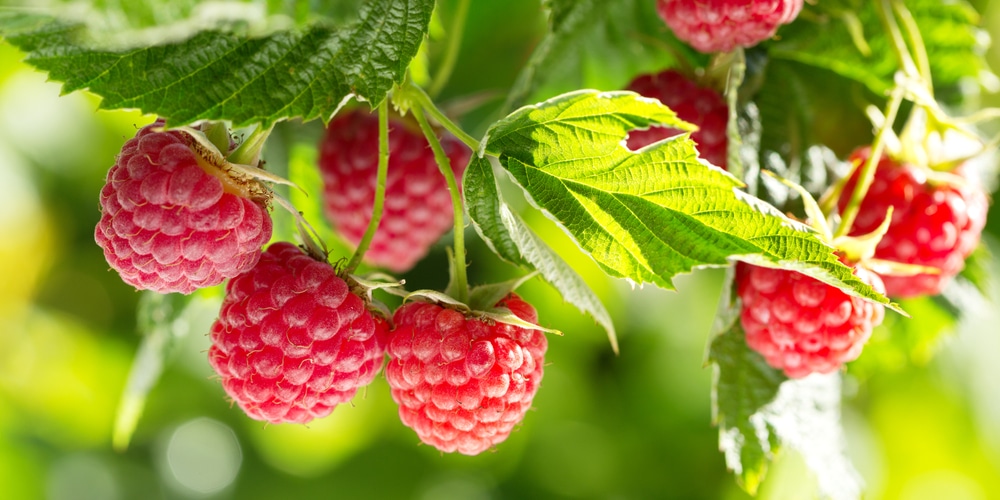
The best time to plant raspberries in Massachusetts is during the early spring. They need to be exposed to a lot of sun in high draining soil.
Raspberry Planting Best Practices
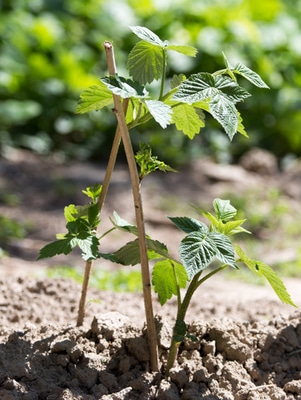
If you want to get started planting your raspberry bushes now, follow these steps:
Step 1. Pick A Location For Your Raspberries
Because of how raspberry plants spread out, it’s best to arrange them into rows rather than clusters. This way, you’ll be able to harvest more fruit per square foot of land! Also, make sure that they are positioned so that no matter which direction the row faces, there will be at least 6 hours of sun each day.
When you choose your location for your raspberry garden, also consider how much space you’ll need for other fruits and vegetables you’ll be growing. If you plant them closer than 6 feet apart, your raspberry canes may start to fight over space and sunlight with the rest of your garden.
Step 2. Prepare Your Raspberries’ New Home
Dig up your bed in preparation for planting the raspberry bushes. Remove any grass or weeds that are already there, then loosen up the soil with a shovel or pitchfork so that when you add the new raspberry plants, their roots will have easy access to water and nutrients!
It’s also important to note whether or not this spot gets full sun all day long – if it doesn’t get enough light, your raspberry bushes will be too spindly to yield raspberries!
Step 3. Plant Your Raspberries
Fill your garden or planting plot with a mixture of peat moss and compost – this way, your raspberry roots will have plenty of water and nutrients throughout the growing season. Make sure that there is at least a foot between each raspberry plant – these canes can get quite large!
The best time to plant raspberries in Massachusetts is during the early spring. This is because they are not easily damaged by frost.
Types of Raspberries That Grow in Massachusetts
There are two types of raspberry plants: summer bearing and fall-bearing. Summer-bearing plants produce fruit in late June or early July, while fall-bearing plants produce fruit in the fall, usually in September or October.
Which type of raspberry plant is better for you depends on what you want from your raspberries. If you want a lot of fruit in a short period of time, then summer bearing is the way to go. However, if you want a steady stream of fruit throughout the season, then fall-bearing is the better option.
Both types of raspberry plants have their pros and cons and grow well in Massachusetts, so it is up to you to decide which one is best for your needs.
Consider what kind of growing conditions your plants will have and how much space you can dedicate to raspberry plants. Make sure that you know which type of raspberry plant your local garden center has, as well as what other people in your neighborhood are growing.
Massachusetts is in the plant hardiness zones 5a and 7b. Here’s where you can find the hardiness zone for your county.
Some types of summer bearing raspberries include:
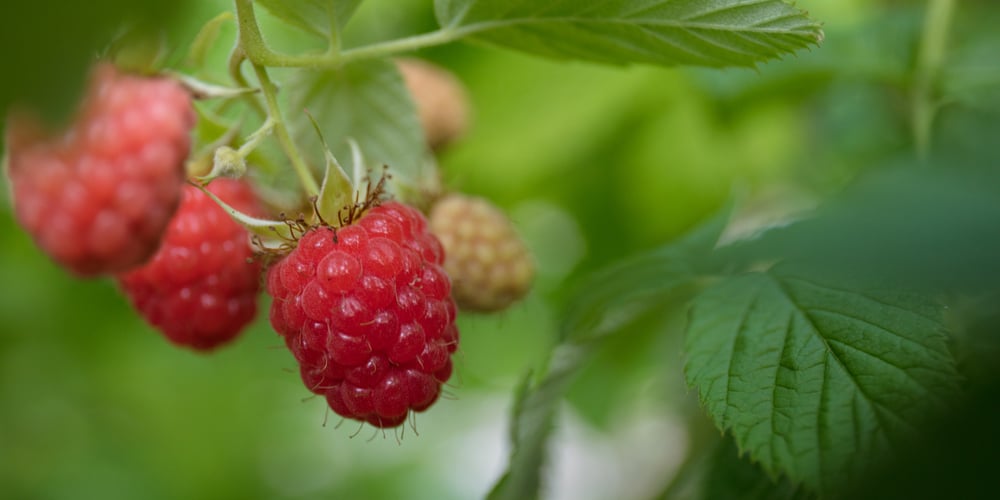
- New England – produces fruit in June and July; large yields; needs fertile soil with good drainage; hardy from zones 3 to 7
- Heritage – produces fruit after New England, sometimes producing right up until frost; hardier than other types, able to withstand colder weather; less susceptible to root rot than many other types
- Elliot – ripens early and often throughout the season; good for warmer climates and areas where summer heat is a problem for other types of raspberries
Some types of fall bearing raspberries include:
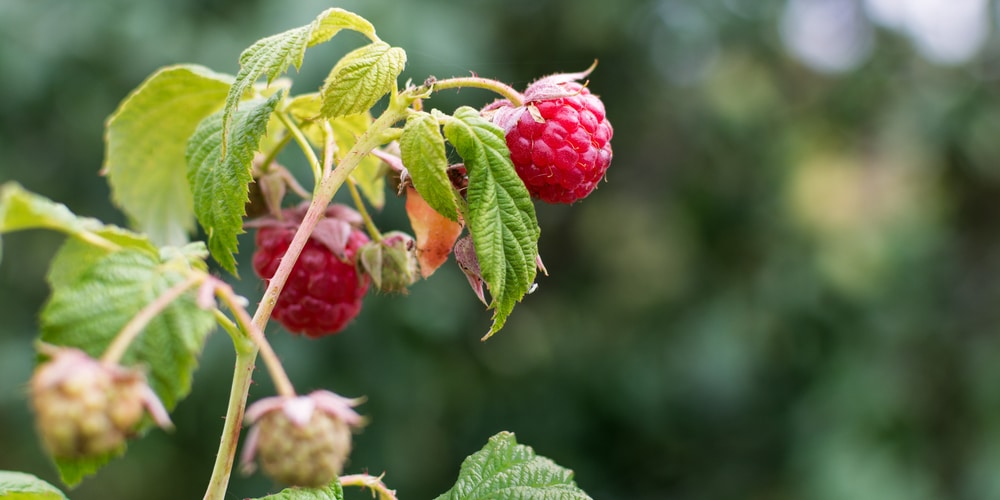
- Autumn Bliss – ripens in late August and September; good for colder climates; hardy in zones 3 to 7
- Loganberry – a hybrid of raspberry and blackberry; ripens in early to mid-summer; good for both warmer and cooler climates; hardy in zones 5 to 8
- Heritage – see summer bearing plants, listed above
No matter which type of raspberry you choose, make sure that you plant your plants in well-drained soil. Raspberries do not like wet feet, so if your soil is heavy or does not drain well, then you will need to amend it before planting. Adding peat moss or compost to your soil will make it well-drained and fertile.
Common Raspberry Diseases
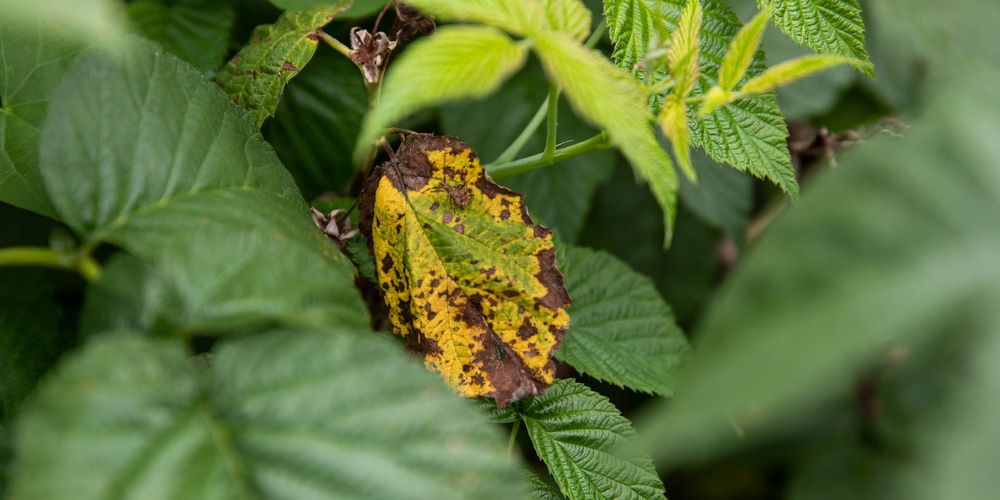
Now that you have an idea of when to plant raspberries in MA and what types of raspberries do well here, let’s look at some common raspberry diseases.
Raspberries are susceptible to several diseases, including anthracnose, cane blight, bacterial blight, botrytis aka gray mold or bud rot, crown gall, mosaic virus and verticillium wilt. Make sure that the place where you purchase your plants is reputable and has a good track record for customer satisfaction.
If possible, consult local gardeners before purchasing raspberry plants, as there may be a local source that better meets your needs. For example, if many people in your neighborhood grow summer-bearing raspberries but have clay soil with poor drainage, you’d be better off with fall-bearing raspberries.
Also, consider how much care you are willing to put into your raspberry plants – fall-bearing raspberries may be more forgiving of neglect.
Conclusion
You want to plant raspberries in Massachusetts earlier than a lot of fruits. This is because raspberries are hearty and can handle a little cold.
Raspberry plants aren’t that difficult to care for! Just throw some fertilizer and compost around them every year, and you’ll be good to go. Remember that raspberry bushes don’t like their roots disturbed, so try not to transplant them too often.
For more on planting raspberries in Massachusetts, check out this cool article.